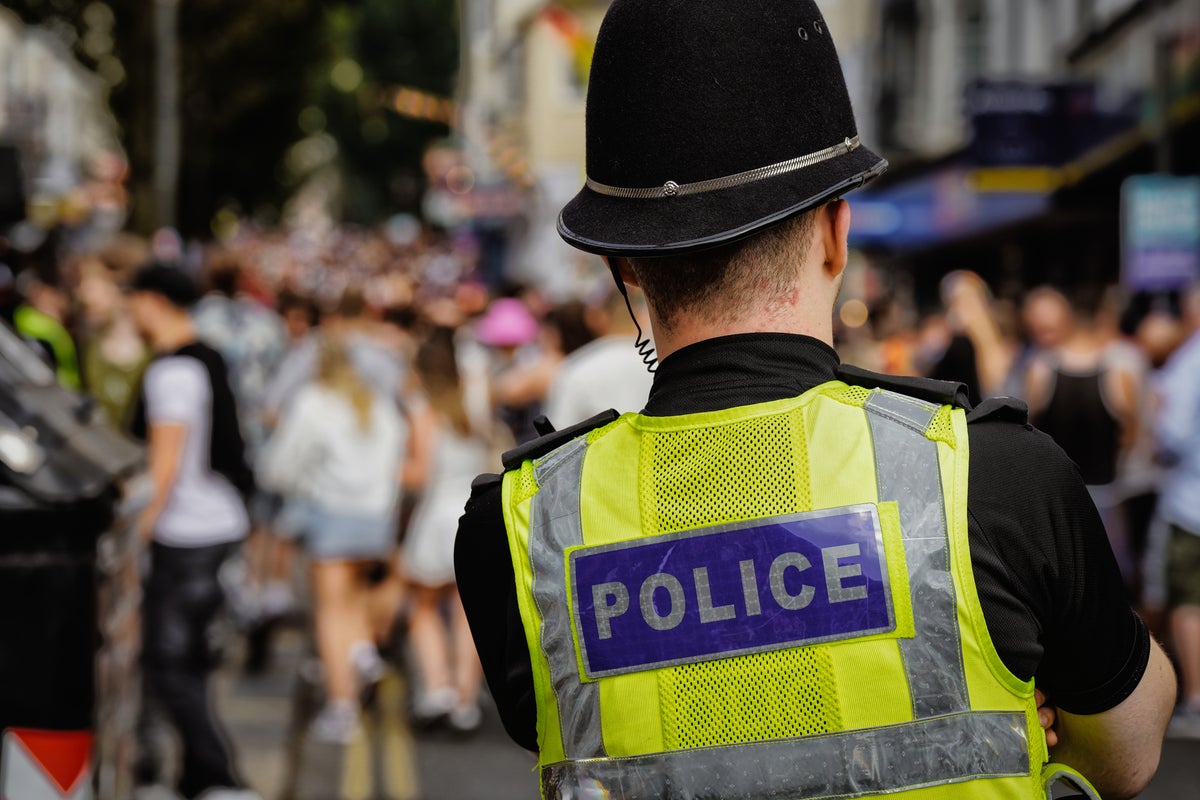Uniformed police face being effectively banned from taking part in Pride parades after a “wide-reaching” ruling at the High Court.
The judgment, handed down on Wednesday, ruled that officers were wrong to have taken part in Newcastle’s Pride parade last year.
The case was brought by Linzi Smith, who describes herself in court documents as a “lesbian who is ‘gender critical’,” who “believes that a person’s sex is an immutable characteristic”.
She argued that police breached their impartiality obligations by taking part in the event and appearing under a banner supporting transgender people’s rights.
The judge, Mr Justice Linden, agreed with her and ruled that the Chief Constable of Northumbria Police, Vanessa Jardine, acted unlawfully when she allowed uniformed officers to take part in the event last year.
The ruling is likely to have wide-reaching implications for how police are able to participate in community events across the country.
Chief Constable Gavin Stephens, chair of the National Police Chiefs’ Council, said the organisation is “working through the detail” of the judgment and is working to create broader guidance to help local forces “make decisions around participation in events to maintain their impartiality”.
“Having police officers and staff who know their communities, are visible in those communities and play an active part in their local area has been shown time and time again to build trust and confidence in our service,” he said.
“Every week police officers and staff will, as part of their duties, take part in thousands of events up and down the country, from community events at village halls through to large-scale events like carnivals, parades and festivals.
“However, we recognise that policing must also maintain its impartiality, including in the types of events it supports and plays an active part in.”
In a witness statement, Harry Miller, a former officer and founder of the group Fair Cop, said the chief constable marched next to participants “carrying the flags and emblems clearly associated with the gender ideologists’ cause” such as banners saying “Trans women are women” and “Trans rights are human rights”.
He argued this signalled a political association.
Reaching his decision, the judge said the chief constable’s participation was likely to be seen as “expressing the support of the head of the force for the views and the cause which the march sought to promote” and “therefore as indicating the position or perspective of the force as an organisation”.
Jo Maugham KC, executive director of the Good Law Project, said the “incredibly important” judgment could have practical implications for all people subject to impartiality obligations participating in such events.
“The impartiality duties that police have are substantially no different from the impartiality duties that all sorts of other public servants have,” he said. “It doesn’t mean police can’t police these parades – they can. But it does mean they can’t march in them.
“But it also could mean civil servants can’t march in them or BBC journalists.”
He warned this could extend to parades or protests relating to other causes, such as anti-racism or anti-misogyny, as trans people are also a legally protected group under the Equality Act.
Mr Maugham added there was a “lack of clarity at the heart of the judgment”, which he said does not define the phrase “gender ideology” itself.
“[The judge’s ruling] seems to think the reality or legitimacy of trans existence is up for debate,” he told The Independent. “The difficulty of that is parliament has said it is not up for debate.
“The Equality Act recognises that trans people – like women and disabled people – are a group whose existence is not up for debate, it is to be protected.”
He said: “This is yet another decision made by our courts which has a very profound effect on LGBT rights where a court has not thought it appropriate to hear from anyone from that community.”
Responding to the ruling, Northumbria Police said it has an “important role to play in a variety of events, including parades and festivals” throughout the year.
It said that while their primary aim is to keep people safe, these events also provide police with “an opportunity to engage with people, including those who may have less confidence in policing.”
“It is vitally important they feel supported and we continue to build their trust in us,” a spokesperson said. “That is why we felt it important to challenge the case which was brought against us and which has implications for wider policing.
“We will work through the ruling to understand the implications, while staying true to our values of fairness, visibility, and support for all.”

